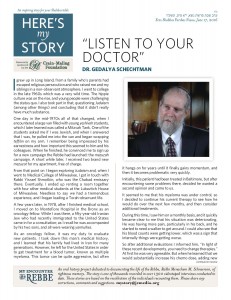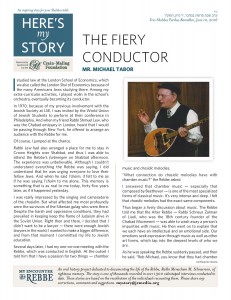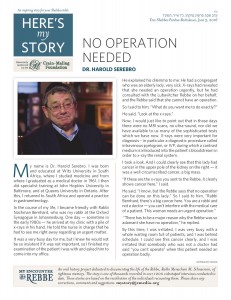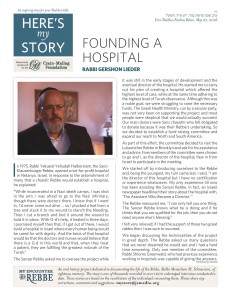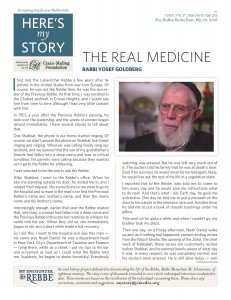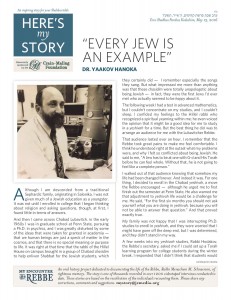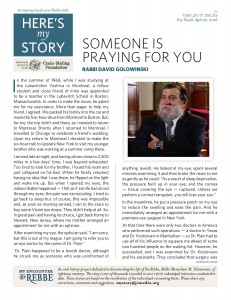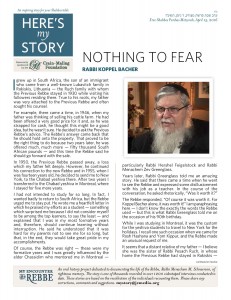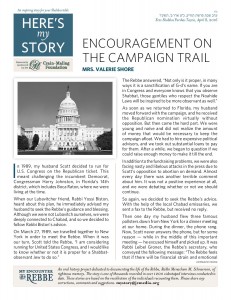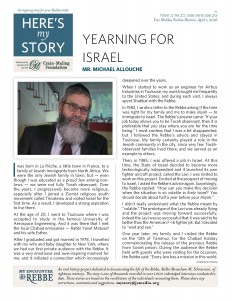“Listen To Your Doctor”
I grew up in Long Island, the son of Russian immigrant parents, who had escaped religious persecution and who raised me and my siblings in a non-observant atmosphere. I went to college in the late 1960s which was a very wild time. The hippie culture was on the rise, and young people were challenging the status quo. I also took part in that, questioning Judaism (among other things) and concluding that it didn’t really have much substance.
One day in the mid-1970s all of that changed, when I encountered a large van filled with young yeshivah students, which I later learned was called a Mitzvah Tank. One of the students asked me if I was Jewish, and when I answered that I was, he pulled me into the van and began wrapping teffilin on my arm. I remember being impressed by his earnestness and how important this seemed to him and his colleagues. When he finished, he convinced me to sign up for a new campaign the Rebbe had launched: the mezuzah campaign. A short while later, I received a brand new mezuzah for my apartment, free of charge.
From that point on I began exploring Judaism and, when I went to Medical College of Milwaukee, I got in touch with Rabbi Yisrael Shmotkin, who was the Chabad emissary there. Eventually, I ended up renting a room together with four other medical students at the Lubavitch House of Milwaukee. Needless to say we had a tremendous experience, and I began leading a Torah-observant life.
A few years later, in 1978, after I finished medical school, I moved on to Montefiore Hospital in the Bronx as an oncology fellow. While I was there, a fifty-year-old Iranian Jew who had recently immigrated to the United States came in for a consultation; as I recall he was accompanied by his two sons, and all were wearing yarmulkes.
As an oncology fellow, it was my duty to evaluate new patients. I took down this man’s medical history, and I learned that his family had lived in Iran for many generations. However, he left for the United States in order to get treatment for a blood tumor, known as multiple myeloma. This tumor can be quite aggressive, but often it hangs on for years until it finally gains momentum, and then it becomes problematic very quickly.
Initially, this patient had been treated in Baltimore, but after encountering some problems there, decided he wanted a second opinion and came to us.
It seemed to me that his myeloma was under control, so I decided to continue his current therapy to see how he would do over the next few months, and then make a decision. (more…)


